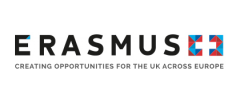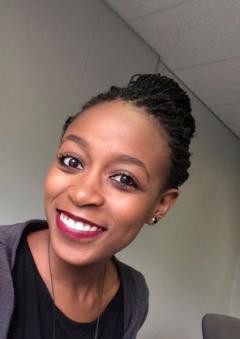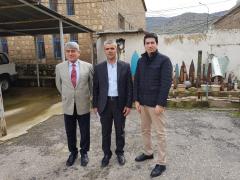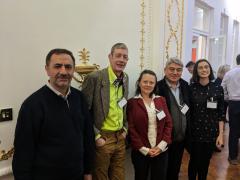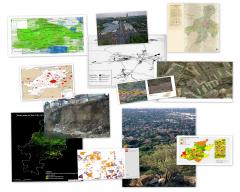As we have reported previously, an Erasmus+ International Credit Mobility grant won by the University of Glasgow from the European Commission has allowed eight staff from the University of Duhok to visit the University of Glasgow. These staff specialise in the field of Medicine, Chemistry, Structural Engineering, Mathematics and Statistics, Urban Geography and Finance.
Part of the engagement role of universities involves collaboration with industry for local benefit, and of particular interest to SUEUAA is how that happens in combination with a wider focus on environmental issues.
In the City of Johannesburg, two students from the University of the Witwatersrand (Wits), were selected as interns of Boeing’s six-month International Business Internship Programme (IBIP) in Seattle, United States of America.
This joint event which took place on Wednesday, April 17, was organised by SHLC and SUEUAA and explored creative research methods. Creative methods are those that go beyond the traditional methods of focus groups, surveys, and interviews. These are methods that either utilise the natural environment or involve arts-based activities (such as music, photography, visual or performance arts) in order to address the research questions posed.
I was very interested to receive this statement from colleagues in the International Council for Adult Education (Africa Network) since it is relevant to our work in Africa (and elsewhere), but particularly in Tanzania, which has such a long history of commitment to adult education and lifelong learning since the days of President Nyerere.
This post serves as an alert to a free-to-attend webinar on the topic of creative research methods. This event is a collaboration between SUEUAA and SHLC. The event will take place on the 17th April at 10am GMT.
In our fifth case study, we highlighted the development of work taking place at the University of Duhok with regards to building collaborations with organisations to develop a regional mine action strategy for areas affected by cluster strike and other battle areas. Last year, Professor Mosleh Duhoky stated:
Understanding and communicating the impact and potential benefits of research to a wide audience is an increasingly important task for higher education professionals. From realising the economic and social benefits of research work, to engaging with key industry and government contacts to create real-life impact, communicating the power of research has never been so important.
On 21st January 2019, members of the SUEUAA team joined other projects funded under the British Academy's Cities and Infrastructure GCRF funding call at British Academy headquarters in London. Dr Muir Houston, Dr Lavinia Hirsu, and Dr Jo Neary from our Glasgow team were in attendance, accompanied by two of our international colleagues: Professor Kamal Ketuly (University of Duhok, Iraq) and Professor Nematollah Azizi (University of Kurdistan, Iran).
We are very grateful to colleagues in another GCRF project, the Centre for Sustainable, Healthy and Learning Cities and Neighbourhoods (SHLC), who have allowed us to publish further presentations profiling three sites, Johannesburg, Dar es Salem and Manila, which are also cities that are part of the SUEUAA work.
The Strengthening Urban Engagement of Universities in Africa and Asia (SUEUAA) project team involves academics from six cities in the Global South: Johannesburg (South Africa), Dar-es-Salaam (Tanzania), Harare (Zimbabwe), Manila (Philippines), Sanandaj (Iran), and Duhok (Iraq); and one city in the Global North, Glasgow (Scotland). At times this blog will highlight incidences where the team members were offered the opportunity to give presentations, lectures, seminars, in order to highlight the public engagement work of the team.

